 We have a Facebook Page. Please “Like” it and follow us for updates. Click the Facebook logo on the left to go to the TABOR page.
We have a Facebook Page. Please “Like” it and follow us for updates. Click the Facebook logo on the left to go to the TABOR page.
We also use Twitter to share information and comment on current TABOR-related issues. Please follow us on Twitter to keep up-to-date on TABOR!
There are two legally distinct organizations that each work on TABOR issues. The TABOR Committee is the Advocacy organization and the TABOR Foundation is the Educational organization.
The TABOR Committee was the original vehicle for getting TABOR passed in 1992. Many people worked on the versions from 1986 through 1992. Many of the leaders or their survivors have given us permission to recognize their work and tribulations in the early years. Among those we recognize are:
The TABOR Honorary Committee includes:
- John and Diane Cox, who started the ball rolling,
- Douglas Bruce
- Clyde Harkins
- Katherine Anderson
- Penn R. Pfiffner
- Tim Cranston
- Fred Holden
- Vern Bickel, In memoriam
- Steve Shoe, In memoriam
Our email address is: TheTaborFoundation@gmail.com, and /or info@TheTaborCommittee.com.
To be notified of TABOR news, join our email list. Send an email with “subscribe” in the subject line to either one of the email addresses listed above or Click (Here).
The TABOR Committee telephone number is 303-747-7460.
The current TABOR Board of Directors are:
- Penn Pfiffner, Chairman
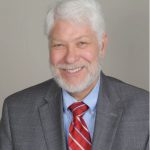 Penn Pfiffner is a former state representative, having served in the Colorado legislature from 1993 through 2000.
Penn Pfiffner is a former state representative, having served in the Colorado legislature from 1993 through 2000.
He was an early leader and proponent of the Taxpayer’s Bill of Rights (TABOR), serving as Regional Coordinator in the 1986 effort, and serving on the TABOR Committee in subsequent years.
His business is financial and managerial consulting to architects, engineers and contractors. He also conducts economic analyses such as forecasting and valuing closely-held stock. He opened his practice, Construction Economics, LLC in 1983.
He taught college Economics at night school, at both the graduate and undergraduate level, for thirteen years. Penn earned his Masters in Finance from the University of Colorado at Denver and his undergraduate degrees in Economics and Political Science from CU-Boulder.
He is the former President of the Denver Association of Business Economists. In the 1980’s, he was a member of the national ASTM’s (Association of Standards, Testing and Materials) Building Economics Subcommittee, which established standards for life-cycle costing and the use of net present value analysis. He was one of 300 economists polled nationally by the National Association of Business Economists for quarterly forecasts of the economy.
Penn wrote and researched for the Independence Institute as a Senior Fellow for 12 years, during which he also served as the Director of the Fiscal Policy Center. He served on the Board of Directors for the Colorado Union of Taxpayers for more than a dozen years, including six years as its President.
He is a veteran, having served as an officer in the Navy, assigned to U.S.S. Oklahoma City (CG5), based out of Yokosuka, Japan from 1977 to the end of 1979.
- Bob Foland, Executive Director
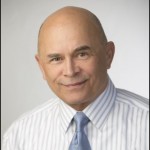 Bob Foland CFP® has been helping individuals, couples and small businesses with their financial planning needs since 1988. Since 1997 he has been an independent advisor, meaning that he is not limited to nor encouraged to use the investment vehicles of any particular company. That independence allows for true objectivity in the investment and planning advice offered by Mr. Foland through his company, The IRA Specialists.
Bob Foland CFP® has been helping individuals, couples and small businesses with their financial planning needs since 1988. Since 1997 he has been an independent advisor, meaning that he is not limited to nor encouraged to use the investment vehicles of any particular company. That independence allows for true objectivity in the investment and planning advice offered by Mr. Foland through his company, The IRA Specialists.
Bob lives in Highlands Ranch, Colorado with his wife and daughter. When he is not helping his clients he enjoys fly-fishing, hunting and skiing.
- Peg Brady, Director Emeritus
 Peg Brady actively supports the goal of fiscally-responsible limited government, recognizing only the few Constitutionally designated powers. Because freedom requires personal vigilance, Peg dedicates her time to upholding the principle that government depends on the consent of the governed.
Peg Brady actively supports the goal of fiscally-responsible limited government, recognizing only the few Constitutionally designated powers. Because freedom requires personal vigilance, Peg dedicates her time to upholding the principle that government depends on the consent of the governed.
Peg earned her Masters degree in Systems Analysis and Project Planning from the University of Denver and her undergraduate degree in English History and Literature from the University of California at Los Angeles.
Her career had two foci: technical writing and computer systems development. In addition, she developed and taught several Systems Analysis courses to company clients and co-workers. She was a key participant in the company’s multi-year project to define optimal systems-development practices and procedures.
- Dennis Polhill, Board member (TABOR Committee only)
 Dennis received degrees in engineering and math from the University of Illinois in 1970 and graduate degrees in engineering and public administration from the University of Pittsburgh in 1978.
Dennis received degrees in engineering and math from the University of Illinois in 1970 and graduate degrees in engineering and public administration from the University of Pittsburgh in 1978.
He worked a decade as a City Engineer and Director of Public Works in Urbana, Illinois, Cumberland, Maryland and Lakewood, Colorado, after which he worked as a consultant in engineering and management to governments all across North America for the decade of the 1980s.
The firm he established developed a new field of engineering called Pavement Management utilizing sophisticated techniques to optimize performance of capital outlays by governments.
Dennis became a Registered Professional Engineer in 12 states and a Registered Land Surveyor in 2 states.
In the 1990s Dennis became involved in numerous real estate, capital finance and entrepreneurial ventures in Colorado, California and Illinois.
Also in the 1990s Dennis became one of the leaders of the term limits movement and became a Senior Fellow at the Independence Institute.
- Brad Hughes, Corporate Secretary
 Brad Hughes has been a Director (or above) for six different entities in six different industries, including Fortune 200, SME, nonprofit, religious, think tank, and the university environments. Brad has over 30 years of telecom experience, including AT&T, US WEST, and Qwest, where he was a director of strategy. He retired from the corporate environment as the Vice-President of Industry Analysis at Telogical Systems of McLean,VA.
Brad Hughes has been a Director (or above) for six different entities in six different industries, including Fortune 200, SME, nonprofit, religious, think tank, and the university environments. Brad has over 30 years of telecom experience, including AT&T, US WEST, and Qwest, where he was a director of strategy. He retired from the corporate environment as the Vice-President of Industry Analysis at Telogical Systems of McLean,VA.
He is a former loaned executive to the University of Colorado College of Engineering where he was the Director of the Government Technology Program. Brad serves on multiple nonprofit boards of directors and is currently a Fellow in Worldviews and Economics at the Centennial Institute, the think tank arm of Colorado Christian University.
Brad has completed international business assignments in Russia and Germany. He has authored essays regarding free market economics and the Judeo-Christian worldview for the American Thinker, the Schwarz Report, the Centennial Review, the Western Center of Journalism, Centennial Institute, and other publications. Brad holds five degrees, including an MBA and an MS from the University of Colorado. He has taught extensively on worldview comparative analyses.
- Dana West, Technology & Communications
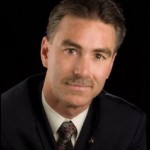 After graduating from Michigan State University, Dana moved to Colorado. He was one of Radio Shack’s top-ranked Senior Managers for many years before leaving to work at Qwest Communications. He is currently a data analyst at CCIG and loves technology, college football, and PIE! Go Green!
After graduating from Michigan State University, Dana moved to Colorado. He was one of Radio Shack’s top-ranked Senior Managers for many years before leaving to work at Qwest Communications. He is currently a data analyst at CCIG and loves technology, college football, and PIE! Go Green!
- Rebecca Sopkin, Corporate Treasurer
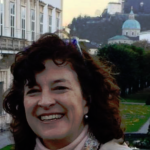 Rebecca Sopkin is an attorney who specializes in Colorado constitutional law, particularly the Taxpayer’s Bill of Rights. She graduated from University of Colorado Law School in 1991 in the top 15% of her class, and was a member of Colorado Law Review. Her private practice includes civil litigation and appellate law before state and federal courts, as well as small business and transactional matters. She is a member of the Federalist Society, and lives in Lakewood with her husband and multiple children, dogs and lizards.
Rebecca Sopkin is an attorney who specializes in Colorado constitutional law, particularly the Taxpayer’s Bill of Rights. She graduated from University of Colorado Law School in 1991 in the top 15% of her class, and was a member of Colorado Law Review. Her private practice includes civil litigation and appellate law before state and federal courts, as well as small business and transactional matters. She is a member of the Federalist Society, and lives in Lakewood with her husband and multiple children, dogs and lizards.
- Natalie Menten, Board member
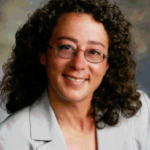 Natalie Menten is a long time political activist from Lakewood
Natalie Menten is a long time political activist from Lakewood
Good morning……..
My name is Peter Coulter and I am a strong supporter of Tabor. During the last Ballot Initiative of 2014; I proposed a definition of “fee” that was previously prescribed by the SCOTUS. The purpose was to counteract the bizarre definition that the Colorado Supreme Court enacted in Barber v. Ritter 196 P. 3d 238 – 2008. We were hamstrung by two items: 1. We got a very late start and 2. Our initiative was on the desk of the Colorado Supreme Court for over 6 weeks because of a bogus argument by Justice Rice and Hobbs. By the time they finished holding it up, it was way too late to get the signatures.
I want to try it again in 2016; and have already made some moves to make it easier to get it on the ballot.
My question for you is I would like to request we join forces to get this initiative passed which would implement the true meaning that Mr. Bruce for TABOR when it was first initiated.
Thank you in advance for your time and consideration.
/s/ Peter Coulter
Mr.PeterCoulter@gmail.com
http://www.cu.edu/cu-advocates/events/cu-scoop-tabor
University of Colorado: TABOR Lawsuit and Discussion: Potential impacts to higher education and the state budget
When:
Wednesday, September 23, 2015 – 5:30pm to 7:00pm
Where:
CU-Boulder, Wolf Law Building, Room 307
Description:
TABOR Lawsuit and Discussion: Potential impacts to higher education and the state budget
Guest speaker will be David Skaggs who served 12 years in Congress (1987-1999) as U.S. Representative from the 2nd Congressional District and three terms in the Colorado House (1981-1987). David is a legal senior advisory with Dentons U.S. He leads the legal team challenging the constitutionality of the Colorado Taxpayer Bill of Rights. David is also an adjunct professor at the CU School of Law. He is co-chairman of the Board of the U.S. House of Representatives Office of Congressional Ethics. Read up on the state’s budget challenges. Please register here http://secure.www.alumniconnections.com/olc/pub/UCO/event/showEventForm.jsp?form_id=189831
Hi all-
I’m investigating the feasibility for the City of Aurora to exit SCFD with a ballot initiative in 2021. Its clearly not been good for Aurora over the last 30 years.
Thoughts?
Pingback: Is 30 Words Enough to Understand a City Ballot Question? Why You’ll Get to Decide for Yourself Next Time You Vote – The Catalyst